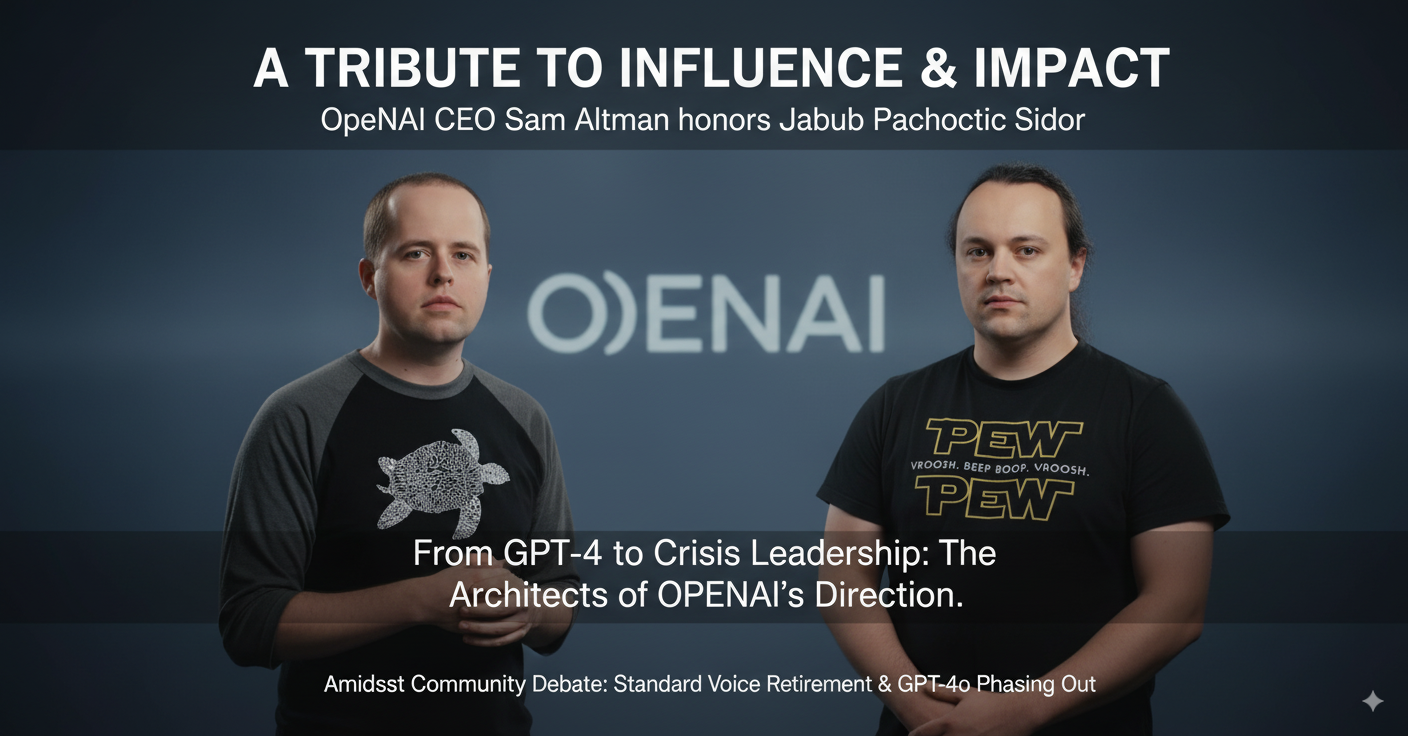Altman’s Rare Tribute
OpenAI CEO Sam Altman has published a rare personal blog post, shining the spotlight on two researchers who have largely worked out of public view: Jakub Pachocki and Szymon Sidor.
Altman described them as a “perfectly complementary legendary duo”, crediting their work with helping OpenAI bridge frontier research and engineering at scale. Together, they have played pivotal roles in projects ranging from OpenAI Five’s Dota 2 victory to the training of GPT-4, as well as laying foundations for OpenAI’s ongoing advances in reasoning.
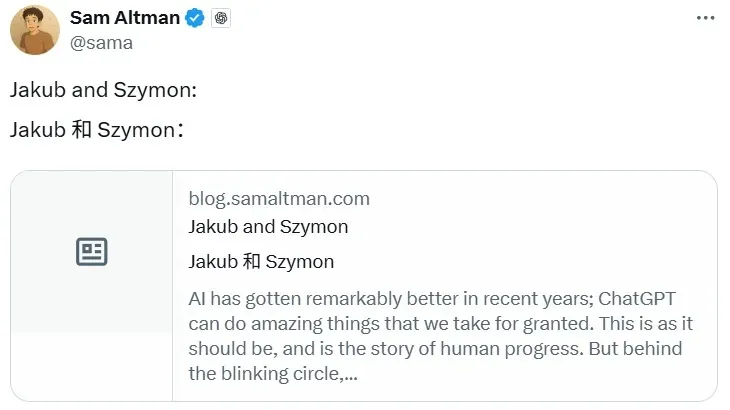
🔗 Blog link: Sam Altman’s Blog
The Duo Behind OpenAI’s Breakthroughs
Altman highlighted that while AI’s rapid progress often overshadows the people behind it, Pachocki and Sidor’s contributions are indispensable:
- Scaled reinforcement learning (RL) when many dismissed it, culminating in OpenAI Five’s triumph.
- Built the core infrastructure powering OpenAI’s scientific advances.
- Directed the pretraining of GPT-4.
- Co-developed early concepts with Ilya Sutskever and Lukasz Kaiser that reshaped reasoning research.
- Explored new paradigms at the frontier of AI.
“Jakub and Szymon are the cornerstone of OpenAI. They tirelessly solve problems most thought impossible—out of the spotlight, but with an impact that defines our future.” — Sam Altman
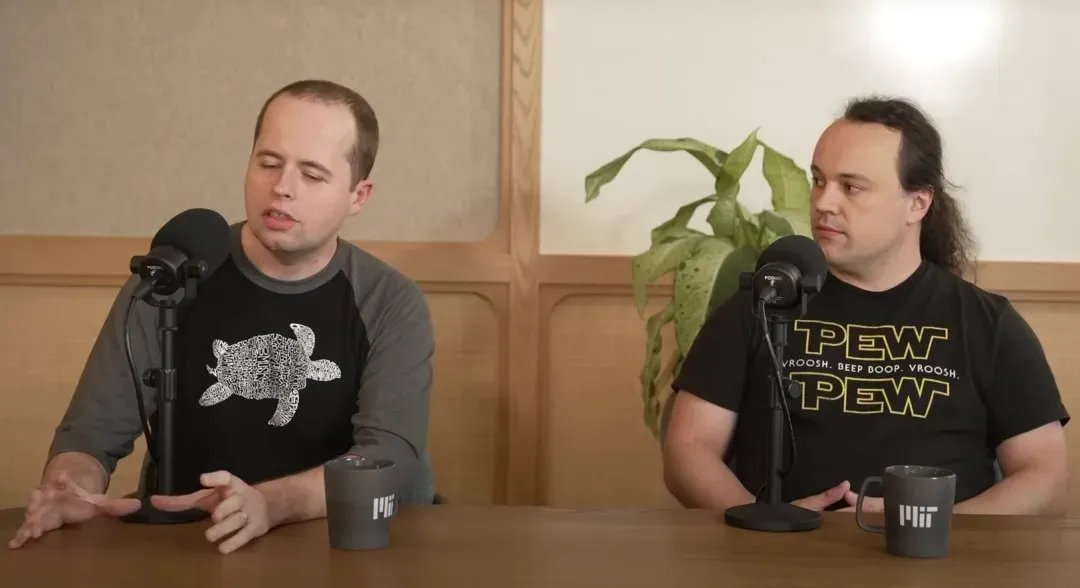
(Left: Jakub Pachocki, Right: Szymon Sidor on OpenAI’s Before AGI podcast)
Jakub Pachocki: From Olympiad to Chief Scientist
- Early Talent: Six-time finalist at the International Olympiad in Informatics (IOI); silver medalist in 2009. In 2012, won both Google Code Jam and the ICPC World Finals gold medal.
- Inspiration: At 15, deeply influenced by Paul Graham’s Hackers & Painters, which shaped his view of programming as both science and art.
- Research: PhD thesis “Graphs and Beyond: Faster Algorithms for High Dimensional Convex Optimization” explored algorithms critical to large-scale neural network training.
- At OpenAI:
- Joined in 2017, led OpenAI Five to victory against world champion Dota 2 teams.
- As Research Director, led GPT-4’s development and pretraining.
- Advocated for and guided implementation of scaling laws, OpenAI’s core research principle.
- Recognition: Named one of TIME’s 100 AI Leaders in 2024.
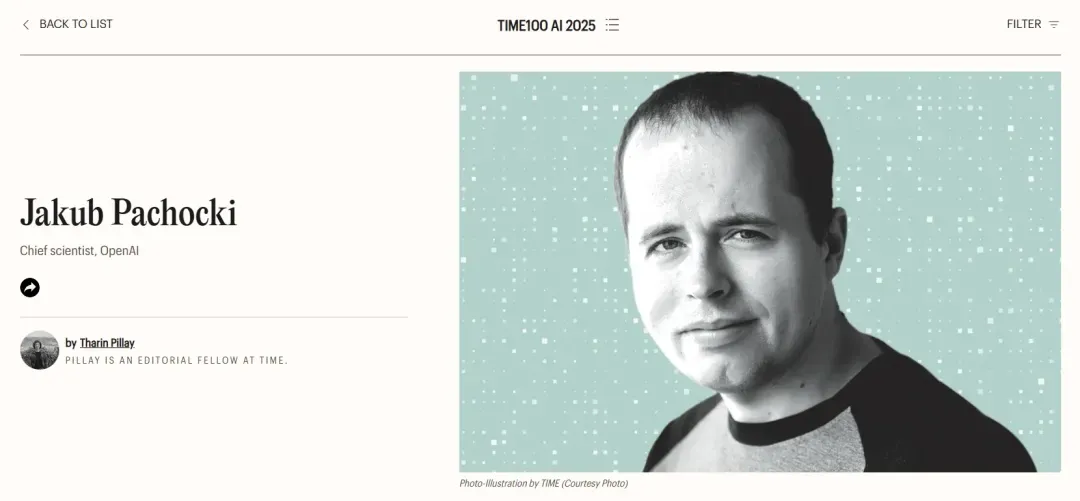
Szymon Sidor: Reinforcement Learning Visionary
- Education: Studied at the same elite Polish high school as Pachocki; later earned an MSc in EECS at MIT.
- Early Vision: His 2016 thesis “Reinforcement Learning Approach to Multi-Stage Reasoning in Natural Language Processing” foresaw today’s RLHF and reasoning frameworks.
- At OpenAI:
- Built large-scale RL systems for OpenAI Five.
- Co-authored the dexterous robotic manipulation project, enabling zero-shot transfer from simulation to real robotics.
- Advanced RL algorithms for efficiency and robustness.
- Key contributor to GPT-4 and reasoning models (o1, o3).
Inside OpenAI’s Boardroom Drama
The duo also stood at the center of OpenAI’s most dramatic crisis.
On November 17, 2023, the board abruptly dismissed CEO Sam Altman, citing a lack of candor. This exposed a rift between Altman’s “accelerationist” camp and Ilya Sutskever’s “safety-first” camp.
In protest, Jakub Pachocki, Szymon Sidor, and Aleksander Madry resigned—sparking a chain reaction. Over 700 employees signed a letter threatening to quit unless Altman was reinstated.
Five days later, the board capitulated. Altman returned, the board was reshaped, and Sutskever’s influence declined. In May 2024, Sutskever formally left the company, and Pachocki was appointed Chief Scientist of OpenAI.
Meanwhile, in the Comments: #KeepStandardVoice & #keep4o
While Altman’s blog praised Pachocki and Sidor, the comments section told a different story—flooded with hashtags like #KeepStandardVoice and #keep4o.
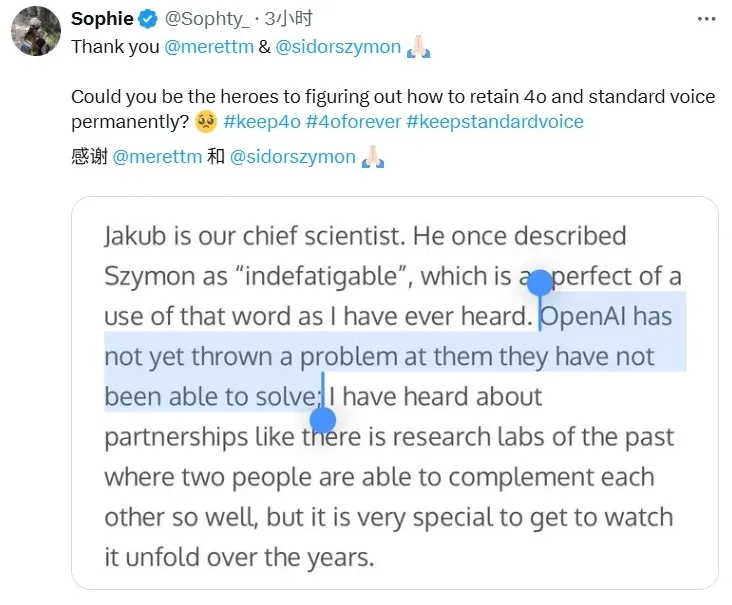
#KeepStandardVoice
- On September 9, 2025, OpenAI retired ChatGPT’s Standard Voice Mode, including beloved voices like Cove, Juniper, Ember, and Breeze.
- Many users criticized the move, saying the new Advanced Voice Mode lacks the warmth and accessibility of standard voices.
- Disability advocates warned the change threatens digital accessibility.
#keep4o
- OpenAI also began phasing out GPT-4o, despite earlier assurances of long-term support.
- Users argue GPT-4o carries unique value that newer models can’t replace.
- A growing movement demands GPT-4o remain available as an option, emphasizing AI’s emotional as well as technical impact.
These debates have exploded across Reddit, X (Twitter), and OpenAI’s official forums, complete with digital protest posters.

